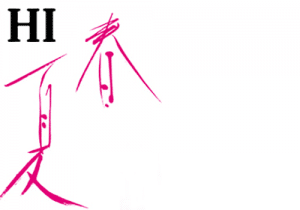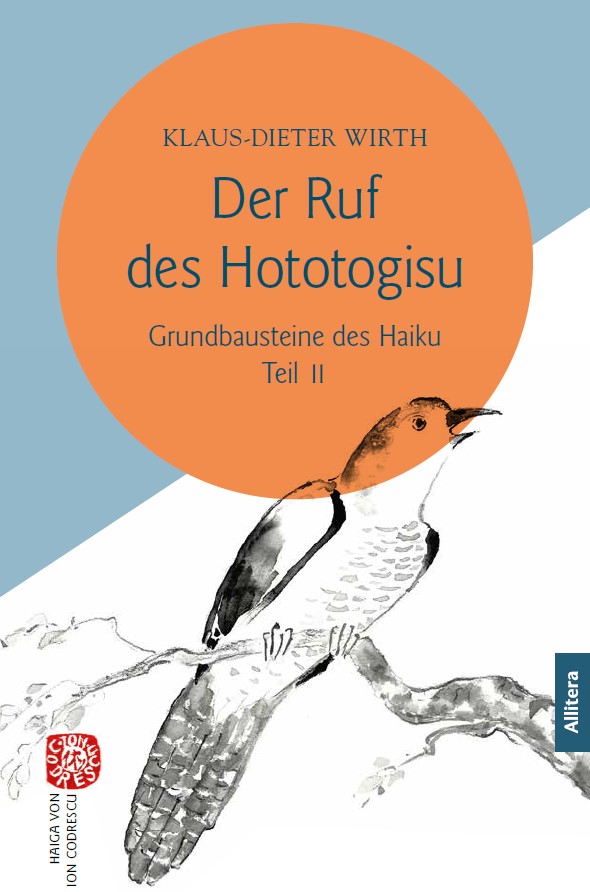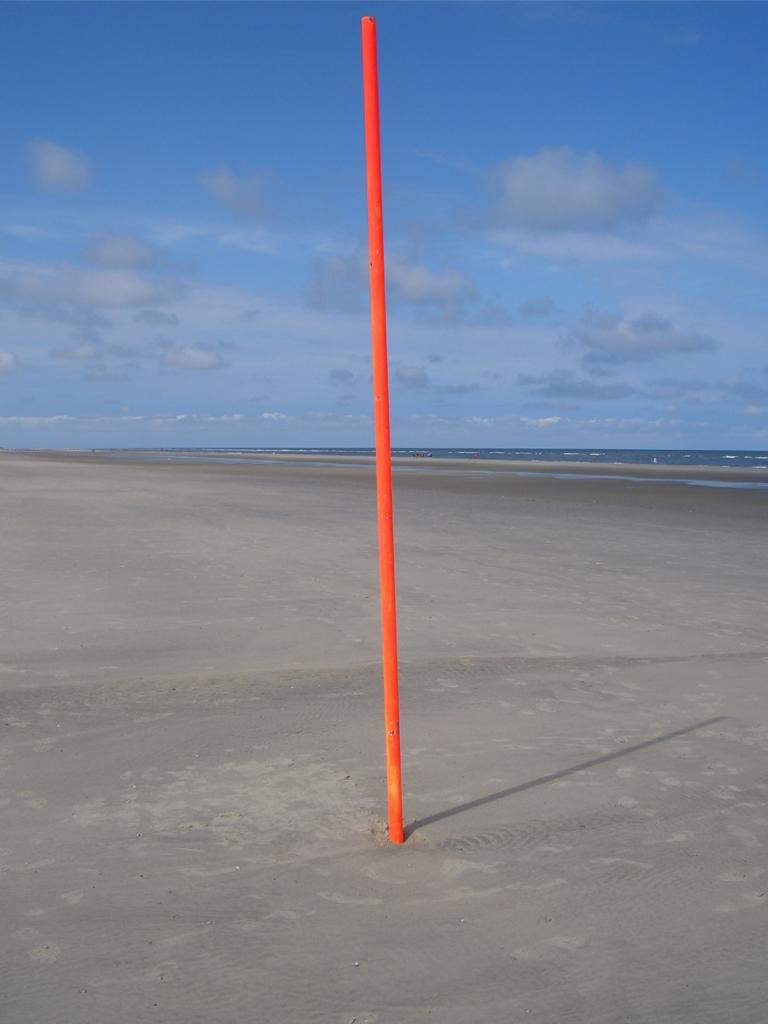Es wurden insgesamt 275 Haiku von 102 Autoren und 63 Tanka von 25 Autoren für diese Auswahl eingereicht. Einsendeschluss war der 15. Juli 2020. Diese Texte wurden vor Beginn der Auswahl von mir anonymisiert.
Jedes Mitglied der DHG hat die Möglichkeit, eine Einsendung zu benennen, die bei Nichtberücksichtigung durch die Jury auf einer eigenen Mitgliederseite veröffentlicht werden soll.
Eingereicht werden können nur bisher unveröffentlichte Texte (gilt auch für Veröffentlichungen in Blogs, Foren, inklusive die Foren auf HALLO HAIKU, sozialen Medien und Werk-stätten etc.).
Bitte keine Simultan-Einsendungen!
Bitte alle Haiku/Tanka gesammelt in einem Vorgang in das Online-Formular auf der DHG-Webseite HALLO HAIKU selbst eintragen:
https://haiku.de/haiku-und-tanka-auswahl-einreichen/
Ansonsten per Mail an:
auswahlen@deutschehaikugesellschaft.de
Der nächste Einsendeschluss für die Haiku/Tanka-Auswahl ist der 15. Oktober 2020.
Beachten Sie bitte folgende Änderung:
Jeder Teilnehmer kann bis zu sechs Texte – drei Haiku und drei Tanka – einreichen.
Mit der Einsendung gibt der Autor/die Autorin das Einverständnis für eine mögliche Veröffentlichung in der Agenda 2021 der DHG sowie auf http://www.zugetextet.com/sowie für eine mögliche Vorstellung auf der Website der Haiku International Association.
Haiku-Auswahl der HTA
Die Jury bestand aus Reinhard Dellbrügge, Deborah Karl-Brandt und Helga Schulz-Blank. Die Mitglieder der Auswahlgruppe reichten keine eigenen Texte ein.
Alle ausgewählten Texte – 41 Haiku von 32 Autoren – werden in alphabetischer Reihenfolge der Autorennamen veröffentlicht. Es werden max. zwei Haiku pro Autor aufgenommen.
„Ein Haiku, das mich besonders anspricht“ – unter diesem Motto besteht für jedes Jurymitglied die Möglichkeit, bis zu drei Texte auszusuchen (noch anonymisiert), hier vorzustellen und zu kommentieren.
Da die Jury sich aus wechselnden Teilnehmern zusammensetzen soll, möchte ich an dieser Stelle ganz herzlich alle interessierten DHG-Mitglieder einladen, als Jurymitglied bei kommenden Auswahl-Runden mitzuwirken.
Eleonore Nickolay
Ein Haiku, das mich besonders anspricht:
Spielende Kinder
Der alte Mann auf der Bank
Ballt die FäusteHartmut Fillhardt
Welch eine Szene! Hier die wahrscheinlich friedlich spielenden Kinder, dort der alte Mann, mit sich selber im Unfrieden. Was veranlasst ihn, die Fäuste zu ballen? Was geht in ihm vor? Verabscheut er die Kinder und ihr vielleicht lautes Spiel, oder ist er ihnen zugetan? Ist er aggressiv gestimmt, möglicherweise bösartig, oder ist er verzweifelt? Welche Rolle spielt seine persönliche Geschichte? Welche Erinnerungen, Erfahrungen, Wünsche, Sehnsüchte, Enttäuschungen finden ihren Ausdruck in seiner heftigen, aber nicht ostentativen, eher heimlichen Geste?
Ein gelungenes, spannungsvolles Haiku, das dem Spiel der Assoziationen ein weites Feld eröffnet.
Ausgesucht und kommentiert von Reinhard Dellbrügge
Vor zwanzig Jahren
dachte ich ans Alter mit
aller Zeit der Welt.Jan C. Weck
Ein ungewöhnliches Haiku, auf den ersten Blick besonders in formaler Hinsicht. Es besteht aus einem vollständigen Satz, weist also nicht den üblichen Einschnitt auf, die Zweiteilung, die im Japanischen durch ein Schneidewort und im Deutschen oft durch einen Gedankenstrich markiert wird. Zudem hält es sich exakt an das nicht mehr häufig angewandte Schema von 5-7-5 Silben.
Mit diesen beiden formalen Gegebenheiten sind zwei Gefahren verbunden. Die erste besteht darin, dass die Zeilensprünge von der Silbenzahl diktiert werden, anstatt sich an der rhythmischen Struktur des Haiku auszurichten. Die zweite Gefahr ergibt sich aus dem Fehlen der Zweiteilung, durch welche ein Kontrast erzeugt wird, eine Spannung, die einem einteiligen Haiku abgehen könnte.
Um es gleich vorwegzunehmen: Das satzförmige Haiku zeigt sich den Gefahren gewachsen. Die Zeilensprünge sind rhythmisch sinnvoll, der zweite erzeugt sogar eine leichte erwartungsvolle Gespanntheit. Und wie löst das Haiku das Kontrast- bzw. Spannungsproblem? Dies geschieht gänzlich auf der inhaltlichen Ebene. Das Verständnis des Haiku verlangt vom Leser einen Aspekt- bzw. Perspektivenwechsel. Die erste Lesart: Vor zwanzig Jahren glaubte ich alle Zeit der Welt zu haben, d. h. das Alter war sehr fern, kaum relevant. Die zweite Lesart: Vor zwanzig Jahren dachte ich mit einer gewissen Vorfreude, im Alter (als Rentner) hätte ich alle Zeit der Welt. Dieser Spannung erzeugende Kontrast zwischen zwei Deutungen stellt zugleich den Kontrast zwischen zwei Illusionen dar – womit sich zuletzt eine existenzielle Dimension auftut. Chapeau!
Ausgesucht und kommentiert von Reinhard Dellbrügge
Herzschlag
da bist du
ja wiederHans-Jürgen Göhrung
Beim Lesen gestolpert. Zu schnell gelesen, noch mal lesen. Diesmal langsamer. Spüren, wie sich Begeisterung ausbreitet.
Warum der Herzschlag stolpert, ausbleibt, wird nicht erzählt. Vielleicht ist ein Kind verschwunden. Eben noch hat es unsere Hand gehalten. Nun ist es in der Menschenmasse verloren gegangen. Die Hitze steigt den Hals hinauf, das Herz schlägt bis in unsere Kehle, Schweiß bricht aus. Da endlich, gleich neben dem Brunnen, entdecken wir es, wo es selbstverloren mit dem Wasser spielt.
Vielleicht warten wir sehnsüchtig am Bahnhof. Zu lange waren wir voneinander getrennt. Der Zug fährt ein, Menschen strömen hinaus und füllen den Bahnsteig, streben dem Ausgang zu, verschwinden, der Strom der Reisenden tröpfelt nur noch, und unsere Zweifel wachsen. Wenn doch noch etwas schief gegangen ist? Dann erspähen wir es, das vertraute Gesicht. Endlich!
Vielleicht lauschen wir ängstlich hinein in die eigene Brust. Der vertraute Rhythmus hat ausgesetzt, unser Leben steht still, dann schließlich ein Schlag und noch einer und noch einer. Wir atmen erleichtert aus. Und merken erst jetzt, dass wir die ganze Zeit den Atem angehalten haben.
Dieses Senryu benötigt nur wenige Worte (mit nur 8 Silben), aber mehr braucht es gar nicht, um verschiedene Bilder vor unserem inneren Auge entstehen zu lassen. Die gewählte arhythmische Textform unterstreicht die Aussage der Worte vorzüglich: Sie lässt uns als Leser beim Lesen stolpern, ebenso wie das Herz im Gedicht. Fragment und Phrase sind klar erkennbar. Jedes Wort ist nötig, selbst das „ja“ in der dritten Zeile. Erst so werden die Erleichterung und das Erstaunen, dass nochmal alles gut gegangen ist, für den Leser nachvollziehbar. Das gewisse Etwas, der leere Raum, auf den wir als Leser selbst eine Antwort finden müssen, bleibt gewahrt.
Auch wenn es zunächst unscheinbar wirkt, dieses feine Gedicht, hat es doch große Kraft, gerade weil es sich existentiellen menschlichen Erfahrungen wie Verlust und Wiederfinden, Tod und Leben widmet.
Ausgesucht und kommentiert von Deborah Karl-Brandt
Entdeckung –
ihr Schatten
winkt zurückGérard Krebs
Mich hat dieses Haiku angesprochen – allerdings erst beim zweiten oder sogar dritten Lesen. Vielleicht hätte es mich nicht angesprochen, wenn ich nicht folgendes Erlebnis mit meiner Enkelin gehabt hätte:
Vor ein paar Jahren, als sie noch kleiner war, ca. 3 Jahre alt, gingen wir beide mit dem Hund bei Sonnenschein spazieren, winkten der Nachbarin zu. Die Enkelin entdeckte sich plötzlich im Schatten auf dem Gehweg und war begeistert, vor allem über die Bewegung des Winkens. Beim Hund wackelten die Ohren, das fiel der Enkelin erst im Schattenbild auf. Sie hüpfte vor Begeisterung, betrachtete ausgiebig die Ohren des Hundes, sie hatte die Bewegung vorher nicht bemerkt. Wir spielten ausgiebig mit unseren Schattenbildern.
Ich gehe davon aus, dass es eine Beobachtung des Verfassers war. Meine Haiku sind für mich wie Tagebucheinträge, ich sehe beim Lesen auch nach Jahren die Situation genau vor mir.
Ausgesucht und kommentiert von Helga Schulz-Blank
Die Auswahl
Geburtstag
in Videokonferenz
die GästeChrista Beau
Sonntagmorgen
im Prachtbrunnen schwimmen
die Reste der SommernachtWinfried Benkel
Den Rückspiegel ziert
eine Corona-Maske
statt Christophorus.Thomas Berger
Grenzpatrouille
ein Vogelschatten
quert die MauerClaudia Brefeld
Freundinnentreff
wie sie lachen, die Münder
auf den MaskenClaudia Brefeld
zurück vom Begräbnis
Äpfel ernten
für einen langen WinterHorst-Oliver Buchholz
innehalten
mein Schatten aufgehoben
in dem der LindeHorst-Oliver Buchholz
Zen Retreat –
ich vertiefe mich in den Atem
der KlosterkatzeCaroline Christen
ein Spatzenschwarm
vertont
das ChaosBeate Conrad
abnehmender Mond
den Eisprung
verpasstFrank Dietrich
fast Vollmond
vom Traum geblieben
das zerwühlte LakenHildegard Dohrendorf
tunnel unter der sandburg
die hand des anderen
königsBernadette Duncan
gesichtshälften
mit rätselhaften augen
im blickkontaktHans Egerer
Spielende Kinder
Der alte Mann auf der Bank
ballt die FäusteHartmut Fillhardt
Herzschlag
da bist du
ja wiederHans-Jürgen Göhrung
Abschied
Ich laufe auf der Brücke
der ErinnerungHans-Jürgen Göhrung
asche
alles was blieb
ein murmeln im windGregor Graf
spazieren
hand in hand
beinah wie früherGregor Graf
die Leere
zwischen den Zeilen
so dichtMatthias Gysel
nach all den Jahren
ein Brief – Vater beschirmt
die AugenGabriele Hartmann
Sturmwind
ich blase die Backen auf
bei seiner FrageBirgit Heid
Klettersteig
wie lange sie noch dauert
die AntwortBirgit Heid
Glückssträhne
in meinem Haar
seine HändeAnke Holtz
Ausgangssperre
im Baum die Spatzen
streitenAnke Holtz
nur Freundschaft –
heimlich küsst sie
sein ProfilbildAngelika Holweger
dein Atem
die Nacht
voller BlütenAngelika Holweger
Heuernte
in der Fremde
der Duft meiner KindheitPetra Klingl
Entdeckung –
ihr Schatten
winkt zurückGérard Krebs
Aus dem Weizenfeld
erhebt sich kurz die Lerche
und taucht wieder einReinhard Lehmitz
Demenzstation –
der Zauberkünstler
verrät seinen TrickEva Limbach
Auf dem Gartenweg
die silbrige Schneckenspur
abgebrochenSigrid Mertens
Die Speisenfolge
von heute
auf seinem HemdSigrid Mertens
Sicherheitsabstand
der freie Stuhl gegenüber
für den SpatzEleonore Nickolay
leeres blatt
in meinen gedanken
das nichtsSonja Raab
letzte ausfahrt
hundertfünfzig motorräder
richtung friedhofSonja Raab
Käfer
auf dem Rücken – ich
kann mich nicht bückenSebastian Salie
Morgensonne
mein Schatten
übt QigongEvelin Schmidt
Patientenverfügung –
ihr Apfelbaum noch
voll von ÄpfelnAngelica Seithe
margeritenwiese – ich höre meine kinderstimme
Helga Stania
Im Duft der Linden
gehen unsere Schatten
von Grab zu GrabBeate Waszner
Coronavirus
lächeln lernen
nur mit den AugenKlaus-Dieter Wirth
Tanka-Auswahl der HTA
Silvia Kempen und Peter Rudolf wählten sieben Tanka von sechs Autoren aus.
„Ein Tanka, das mich besonders anspricht“ – unter diesem Motto werden Texte vorgestellt und kommentiert.
Ein Tanka, das mich besonders anspricht:
wenn ich groß bin
werde ich Schuhe kaufen
– sagt mein Töchterchen –
rote Schuhe
rote Schuhe, die mir passenGabriele Hartmann
Der erste Gedanke: „Der Zauberer von OZ“ und die roten Schuhe von Dorothy Gale, die magische Kräfte besitzen und sie wieder nach Hause bringen. Oft weiß man etwas erst zu schätzen, wenn man es verloren hat.
„Wenn ich groß bin, werde ich …“ – Wer hat in seiner Kindheit diesen Satz nicht gesagt und von einer Zukunft als Tänzerin, Schauspielerin, Model oder im Falle der Jungen von einer Zukunft als Feuerwehrmann, Pilot oder dergleichen geträumt.
Früher wünschten sich viele Mädchen rote Lackschuhe, heutzutage vielleicht eher glitzernde pinkfarbene Schuhe.
Vielleicht hat die Mutter rote Schuhe, in die das Töchterchen manchmal schlüpft, viele kleine Mädchen tun das. Sie fühlen sich dann besonders und fangen an zu träumen. Träume gehören zum Leben und besonders für Kinder sind sie wichtig, und manchmal werden Träume wahr.
Nun könnte man kritisieren, dass das Wort Schuhe gleich dreimal vorkommt. Aber auf mich wirkt das wie eine Weiterentwicklung. „wenn ich groß bin / werde ich Schuhe kaufen“ – das tun viele Frauen im Übermaß. Aus der Sicht des Töchterchens müssen es rote Schuhe sein, weil es die besonders schön findet. Und sie sollen nicht nur rot sein, sondern auch noch passen. So sieht das Mädchen seine Zukunft. Ein überaus positives Denken, das bestimmt hilft, so manche Schwierigkeiten zu meistern.
Ausgesucht und kommentiert von Silvia Kempen
Die Auswahl
im Baumwipfel
eine Hand voll
Himmel
da hinein hänge ich
meine GedankenClaudia Brefeld
Spätnachrichten
unsere Kriege
reisen
mit Lichtgeschwindigkeit
zu den SternenFrank Dietrich
himmel und hölle
in den fresken
der basilika –
die rufe
der mauersegler …Ruth Guggenmos-Walter
wenn ich groß bin
werde ich Schuhe kaufen
– sagt mein Töchterchen –
rote Schuhe
rote Schuhe, die mir passenGabriele Hartmann
alles was ich
in diesem Frühjahr pflanzte
welk und verblüht
und dennoch freu ich mich wie
ein Kind auf den ersten SchneeEva Limbach
und wieder fragst du
ob Gott wirklich existiert
wart noch ein wenig
wenn im Frühling der Schnee schmilzt
werden wir es wissenEva Limbach
Ein Sonnenstrahl zeichnet in
der trockenen Luft
seinen Weg durch das Zimmer.
Das Licht meidend suche ich
meinen verlorenen Traum.Alexander Strestik
Nachtrag zur HTA-Auswahl aus SOMMERGRAS 129
(Jonathan Perry ist mit der Veröffentlichung dieses Beitrages einverstanden)
ein wenig ragen sie noch
deine Flügel
Feuerkäfer
aus der zu Eis
erstarrten Wasserlache!Jonathan Perry
Zunächst einmal hat mich dieses Tanka sehr angesprochen. Faszinierend fand ich die unwillkürliche Assoziation von Leben und Tod durch den Gegensatz Wasser und Feuer. Doch bei genauerem Hinsehen sind mir Details aufgefallen, die die Wirkung des Textes negativ beeinflussen.
Feuerkäfer habe ich eher klein in Erinnerung, da passt das Wort „ragen“ irgendwie nicht. Fällt der eingefrorene Käfer überhaupt auf, wenn dann vielleicht durch seine rote Farbe. Meine Zweifel waren geweckt und ich beschloss, mich im Internet über Feuerkäfer zu informieren. Die Käfer werden 14 bis 18 mm lang. Ich denke, das würde noch auffallen, wenn die Eisfläche glatt ist. „Brände sind die einzige Vermehrungschance der Feuerkäfer“ Die Larven würden in lebendem Holz zerquetscht oder durch das Harz getötet werden. Die Käfer haben Sensoren, die Temperaturveränderungen bis 50 km Entfernung orten, und wissen so, wo es brennt. Die Larven des Feuerkäfers überwintern und entwickeln sich dann im Frühling. Die adulte Form lebt nur zur Fortpflanzung von Mai bis Anfang Juli. Kann es da sein, dass Feuerkäfer in einer Wasserlache einfrieren?
Meint der Autor oder die Autorin gar nicht den Feuerkäfer, sondern die Feuerwanze, die im Volksmund fälschlicherweise als Feuerkäfer bezeichnet wird? Das war mir vor meinen Recherchen nicht bekannt. Feuerwanzen überwintern, sie können sogar Temperaturen bis -10° Celsius überleben. Sie sind jedoch noch kleiner, nämlich 6,5 – 12 mm.
Auf einer Seite zum Kartenlegen ging es um eine Feuerwanze, und ich fand folgenden Satz: „Nimm dir ein Beispiel an mir. Auch mich erkennt man oft nicht wirklich, denn man hält mich oft für einen Käfer, obwohl ich eine friedliche, jedoch recht aktive Wanze bin.“ Es ging darum, dass man sich selbst annehmen soll, so wie man ist. Stünde in dem Tanka also Feuerwanze statt Feuerkäfer, könnte ich mich in diesem Zusammenhang auch mit dem „ragen“ anfreunden. Bleibt noch die Größe, aber wenn man genau hinsieht, ist das vielleicht möglich.
Aufgrund dieser Unstimmigkeiten haben wir das Tanka nicht in die Auswahl genommen.
Ausgesucht und kommentiert von Silvia Kempen
Sonderbeitrag von René Possél
René Possél hat aus allen anonymisierten Einsendungen ein Haiku ausgesucht, das ihn besonders anspricht.
innehalten
mein Schatten aufgehoben
in dem der LindeHorst-Oliver Buchholz
Ein Haiku, das auf verschiedenen Bedeutungsebenen gelesen werden kann!
Auf einer ersten Ebene wird zunächst ein Vorgang der Abkühlung genannt:
Da hält einer (auf der Wanderung) inne und begibt sich zur Erholung von der Hitze der Sonne in den kühlen Schatten eines Baumes, einer Linde.
Aufmerken lässt allerdings hier schon die Formulierung in der zweiten Zeile: „mein Schatten aufgehoben“ – als ginge es nicht nur um die Schattenkühle des Baumes: „in dem (Schatten) der Linde“. Mit der Erwähnung des Schattens der eigenen Person ist eine zweite, tiefere Ebene angesprochen.
„Der Schatten“ ist (in der Analytischen Psychologie nach C.G. Jung) ein Begriff für die (widerstrebenden bzw. verdrängten) dunklen Anteile der eigenen Persönlichkeit – in der Umgangssprache sinnig „Schattenseiten“ genannt.
Eine zusätzlich spekulative Bedeutung ist dem Wort „aufgehoben“ eigen. Dazu muss ich G. W. F. Hegel bemühen, den Philosophen des deutschen Idealismus. Er versteht den Begriff „Aufhebung“ dialektisch in dreifacher Bedeutung: 1. Aufhebung im Sinne von Beendigung, Überwindung (lateinisch „negare“); 2. Aufhebung als Aufbewahrung, Erhaltung eines Phänomens (lat. „conservare“); und 3. schließlich Aufhebung als Erhöhung in eine höhere Stufe (lat. „elevare“).
Dass der eigene Schatten im Schatten einer Linde gut „aufgehoben“ ist, verweist 3. auch auf die mythologische Bedeutung dieses Baumes. Bei den Germanen war die Linde der Göttin Freya geweiht – der Göttin der Liebe, des Glücks und der Geborgenheit. Wer also im Schatten der Linde seinen eigenen Schatten aufgehen lässt, merkt nicht nur Kühlung. Er ahnt vielleicht unbewusst, dass im Umkreis der Liebe zuletzt die eigenen Schatten-Seiten „aufgehoben“ sein können, d. h. sowohl beendet als auch bewahrt, ebenso integriert wie erhöht …
Ich weiß nicht, ob mir Autor/Autorin des Haiku oder Leser/-in auf alle Ebenen der Deutung dieses Gedichtes folgen mögen. Es muss nicht alles intendiert sein. Man muss innehalten, um in einem Haiku tiefere Bedeutungen zu entdecken.







